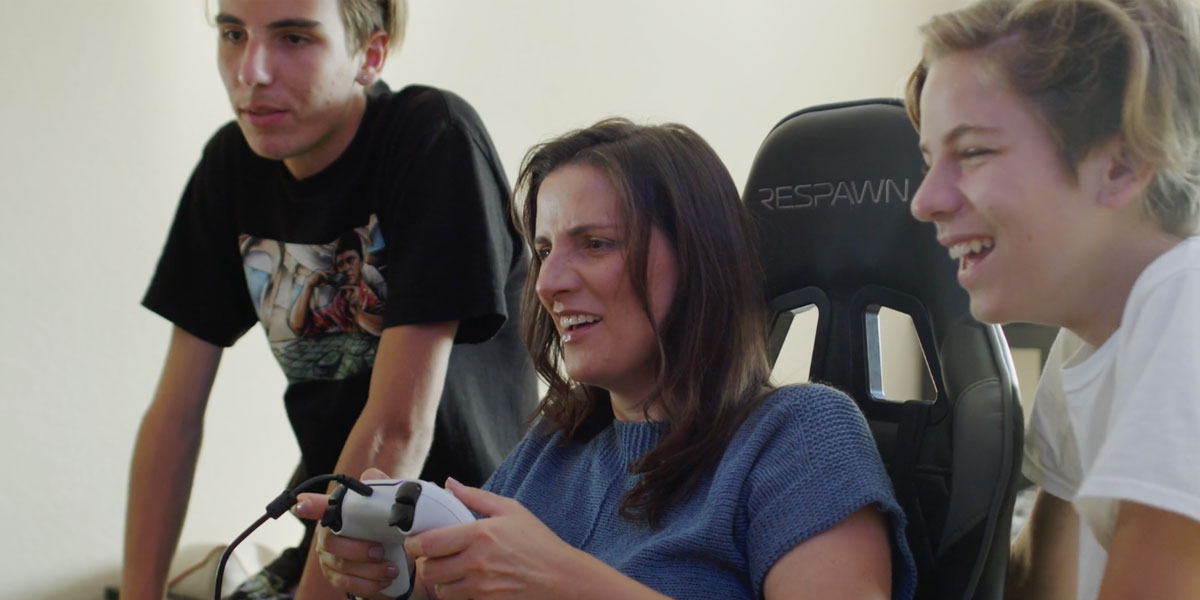Last Updated on 5th April 2024
What is the JusTalk app and is it safe for young people?
Schools and safeguarding professionals are reporting that children and young people are receiving harmful and inappropriate messages on the JusTalk app. After an investigation by our Online Safety Experts, we have created this comprehensive guide to JusTalk that outlines what the app is, whether the JusTalk app is safe and our top tips on how to mitigate the risks it poses to children and young people.
What is JusTalk?
JusTalk is a free social networking platform that hosts video, voice and group calling messaging features, similar to popular messaging platform WhatsApp.
As well as the different age ratings (WhatsApp is for 16+), the app itself is more interactive, with games and ‘doodling’ and features that could be considered more appealing to young people. It also has a social element that young people may feel other apps like WhatsApp are lacking. We also know that apps and platforms trend on and off with young people. JusTalk could just happen to be the hot app of the moment!
Features of JusTalk
- Text one-to-one or in a group of up to 200 members.
- Make calls one-to-one or in a group of up to 50 members.
- Users can ‘doodle’ on faces and play games together during calls.
- Images, voices and videos can be shared.
- Users can share their location.
- In-app purchases of premium services.
- Premium features include the ability to record and store calls within the app.

JusTalk comes in two different versions: one for children aged under 13-years-old (called JusTalk Kids) and one for people aged 13+ (called JusTalk). In this guide to JusTalk, we will be focusing on the risks to young people using the 13+ version of the app.
This version of the app is rated for four- to 13-year-olds. Users of this app can’t accept ‘adds’ from other accounts or receive calls from them. However, if they know the username of someone using the app, they can mututally add each other through the ‘name card’ feature.
JusTalk Kids is designed with a simpler interface than the 13+ version.
Adding ‘friends’ by their JusTalk I.D.
On the JusTalk app, users add friends by their ‘JusTalk I.D.’ . Like a username, people must know this in order to find someone on the app. There is no other way to find ‘friends’ or interact with someone on the app, outside of group calls and messaging.
Although this may sound like a safer way of doing things, during research our Online Safety Experts found that users are sharing their I.D. on other sites and platforms, like Reddit, in order to gain new friends. Unlike many other platforms, the risks associated with JusTalk mainly occur after a ‘friend’ is added (including with someone they might know ‘in real life).
What are the potential risks of JusTalk?
As mentioned above, young people posting their JusTalk I.D. on other sites means that they are publicly sharing their profile details to strangers. Sites like Reddit are designed to be anonymous so young people will have no control over who can view their JusTalk I.D. and add them. Combined with the parts of JusTalk that can be used to build rapport (like the games), this increases the risk of groomers using the site to target young people.
As with any app that revolves around sharing images and videos, there is always a risk. Even when an image or video isn’t overly inappropriate and doesn’t contain self-generated child sexual abuse material, there could still be risks contained that a young person doesn’t see.
Information can be gleaned from an otherwise-innocent looking photo: a school blazer on show tells others where to find them five days a week; hockey sticks, paintbrushes or Fortnite posters gives groomers conversational starters; and a letter on the desk in the background tells where home is.
Images and videos could also be recorded without the subject being aware.
This could leave a young person vulnerable to having their content shared elsewhere without their permission. It may also leave them open to becoming a victim of grooming; images and other footage being used to blackmail and exploit.
As the app allows chats for up to 50 participants, there is a risk that a young person could share their location with someone they don’t really know – because the user in the chat group is a friend of a friend, they might feel like a ‘safe’ person.
A young person might also feel pressured or coerced into sharing their location with someone they don’t know. Location sharing is often used within abusive relationships, as a way for the abuser to assert control over the victim. This could be as part of an unhealthy dynamic with someone they know ‘in real life’ or with a stranger they’ve met online.
End-to-end encryption is a security method designed to ensure that data, like messages, can only be read by the sender and intended recipient(s). It prevents third parties from being able to access that data.
In 2022, it was discovered that JusTalk allegedly left one of their logging databases designed to track bugs in the app, on a cloud server without any password protection. The messages were reportedly not encrypted.
The database has since been shut down and it is unclear whether JusTalk has responded to the accusations.
Very few apps or platforms exist without fault in their system at some point or another. And, given the worrying report about JusTalk’s possible leak of users’ location and messages, it seems the JusTalk app might be no exception.
For example, our Online Safety Experts found that a test adult account could easily add and interact with the account of a supposed 13-year-old by using their usernames.
As the app allows for such large numbers of participants in chats and calls, there is a risk of ‘ganging up’ against one or a smaller group of people. This form of bullying can sometimes occur as a result of the perpetrators feeling less personally responsible when there are others taking part, too.
Bullying and harassment is always difficult for any young person to deal with, but it can be particularly difficult when targeted by many. If the victim has used an app like JusTalk as a main social outlet, they may feel isolated as a result.
Top Tips

Talk to the young people in your care about the risks of sharing information online, such as details about the school they attend, specific hobbies, where they live or like to hang out.
This also applies to sharing online information offline. In other words, discussing or giving out usernames and passwords in public spaces. Emphasise the importance of keeping this information safe, even if they don’t think anyone is listening.

Find out what to do if a young person has lost control of an image online.

Learn more about virtual friendships.

Look over the safety settings together. Use our JusTalk and JusTalk Kids safety cards to learn about how to block and report on the JusTalk app. You can also visit our Safety Centre to learn how to block and report on other popular platforms and apps.
Have conversations about their online world. Talk to the young people in your care about what they like to do online, such as their favourite games to play and websites to visit. This also includes encouraging your child to talk about anything they have seen online that may have upset them.

















